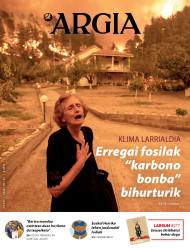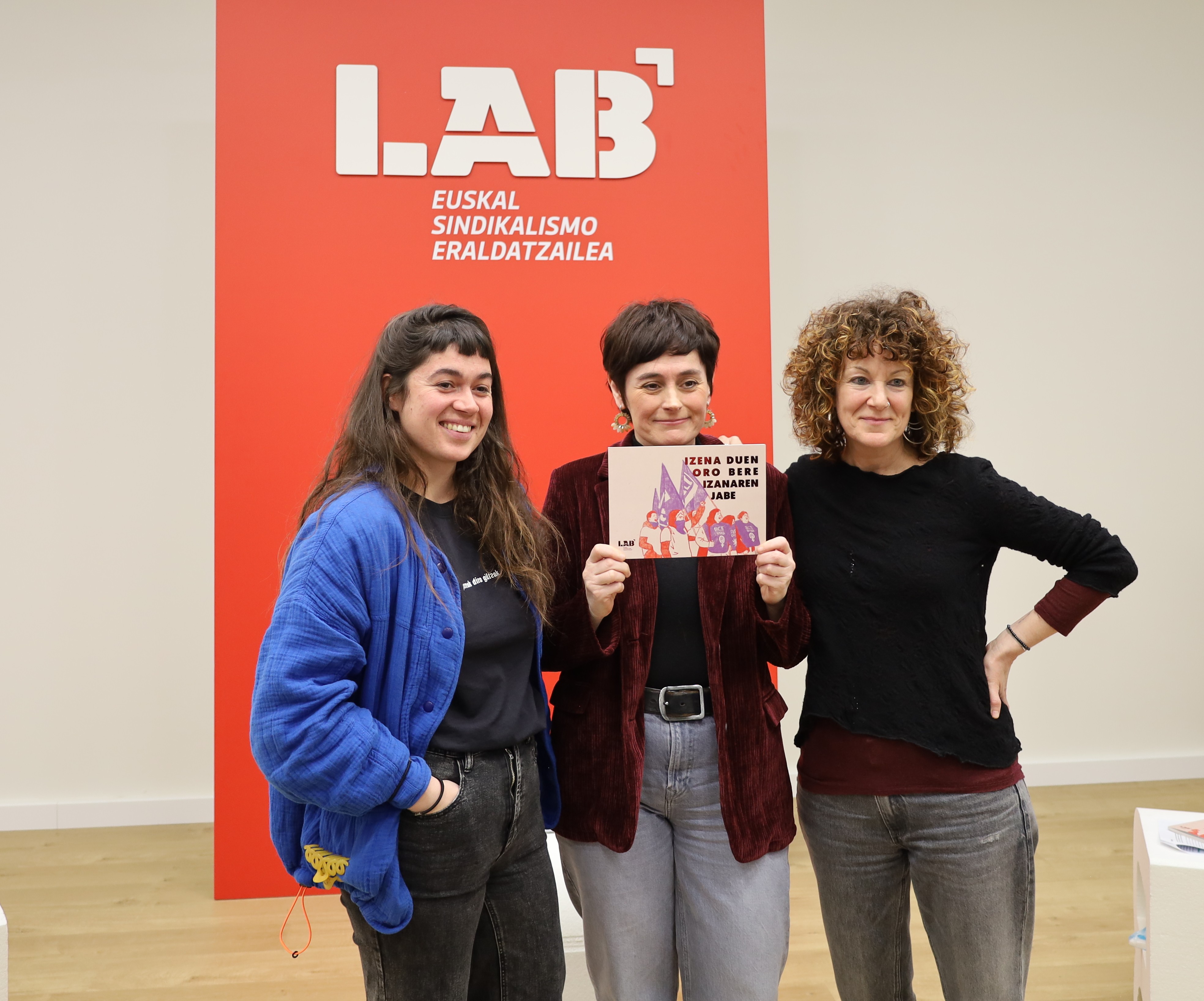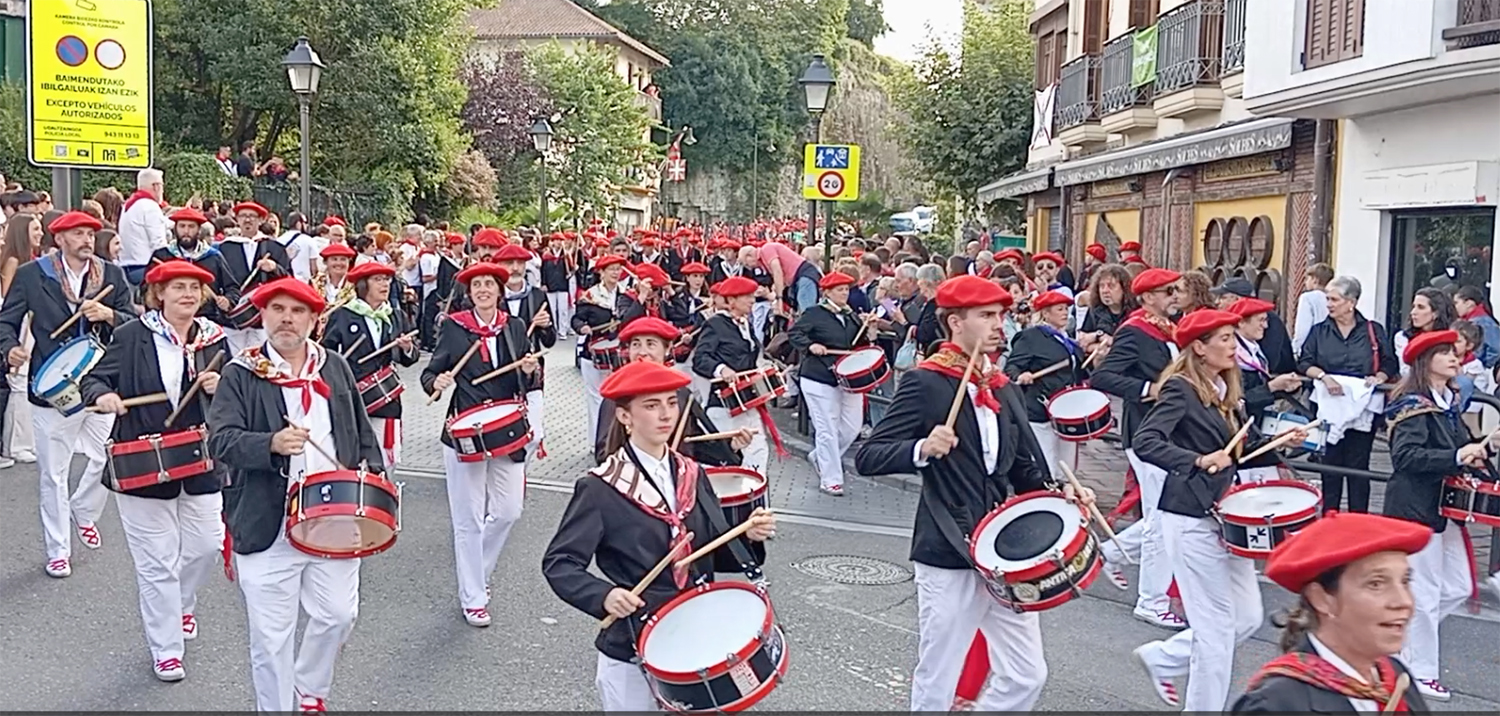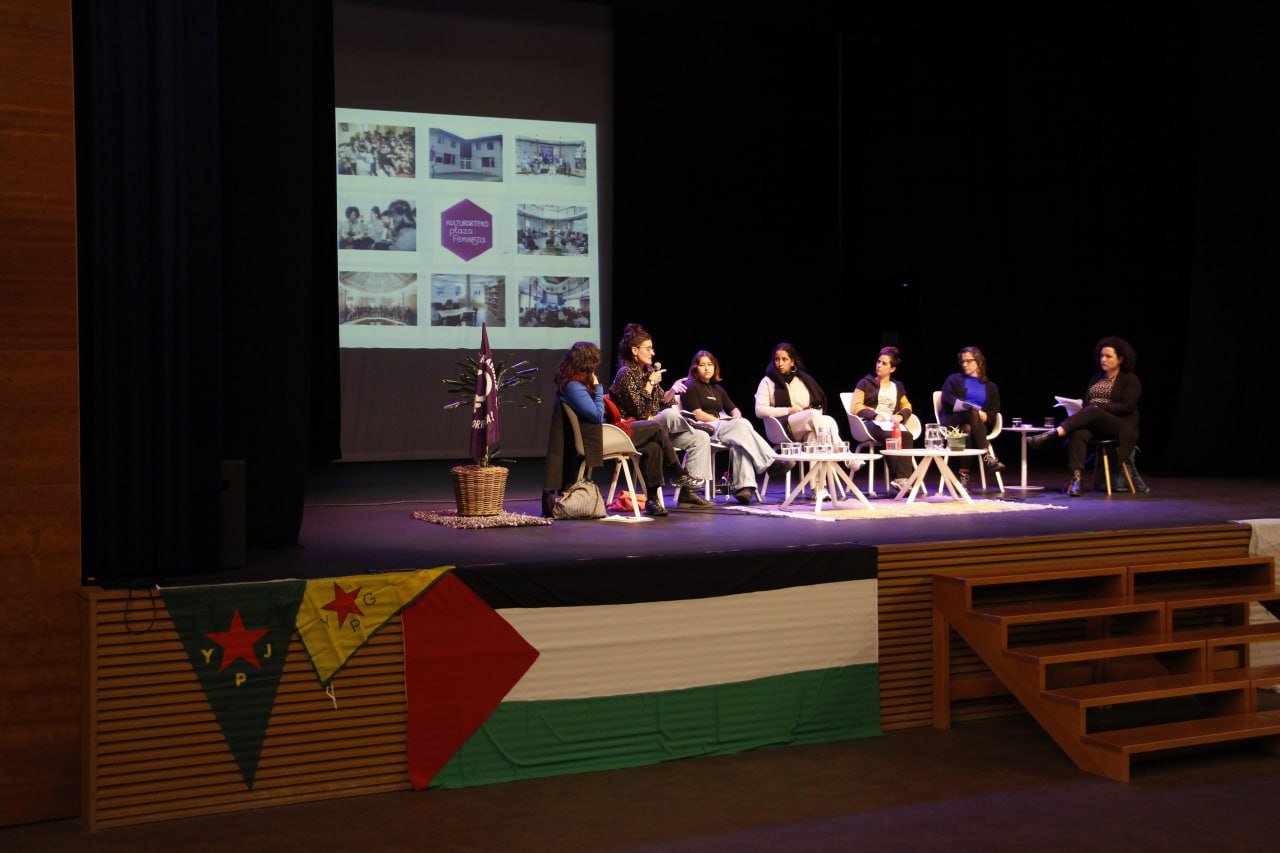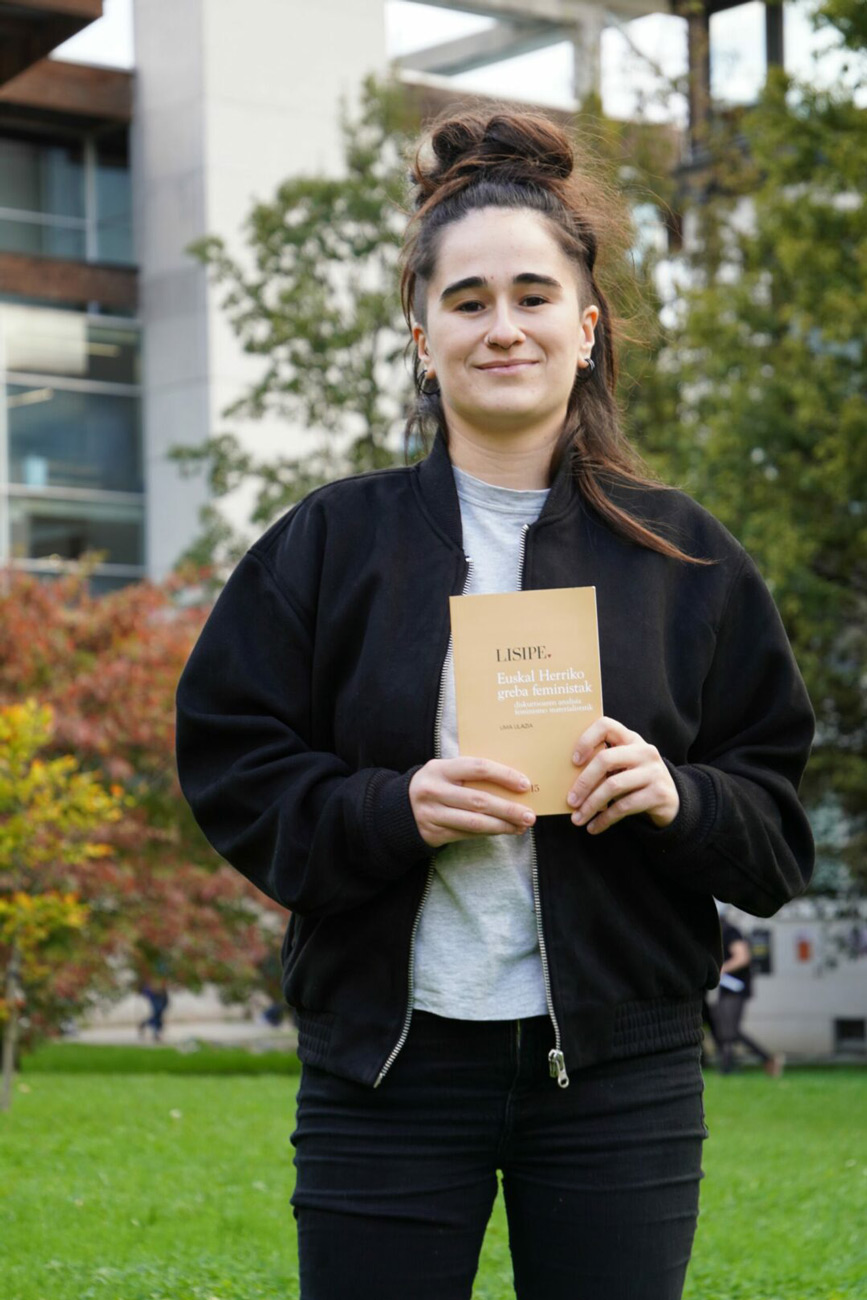Strong activism marks a milestone in Basque Country
- Last weekend, from 9 to 11 September, I Basque Country. Fat Restaurants have been held in the Gaztetxe Astra of Gernika, organized by the collective Ezin Kabitu. 150 people have come together to analyze the policies of bodies traversed by locophobia. As the group explained on its website, inside the patriarchal and thick Basque Country they wanted to create a three-day island to be together, to think, to play, to spread tents and thighs, to splash, to eat and to conspire.

The group Ezin Kabitu has been created by growths from different corners of Euskal Herria, who have gathered for a year, getting to know, proposing actions, reflecting, playing… The group denounces that there is no space for their bodies: that they do not fit in the criteria of “health” of the main health systems, in the gymnasiums given at the end of the alternative festivities, in the heteronorm “All life is subject to rules that prevent us from breathing.”
But they cannot fit with affection and pride, they are excited and charged with motivation to forge alliances between the fat people of Euskal Herria. They do not fit and they are clear that they do not want to fit into this system that they cannot.
A comprehensive three-day programme
For three days, a broad program was prepared that dealt with diverse issues, laughing, traveling through one's own body, touching, getting excited, getting full of color. On the complicity of looks to sew the network with words, silence, shouts and hugs.
Friday after welcome and dinner I. A thick bertsos session was held with the bertsolaris Onintza Enbeita, Uxue Alkorta and Haizea Arana and Lierni Altuna as a gaitero. During the program, the bertsolaris sang by the mouth of several coarse characters: before he was a lean friend and before he was lean, a person who the leagues ask him to stay hidden from each other, to go to the doctor because he has plugs and the doctor tells him to lose weight, to the surprise of all the couple of friends who participate in the march of the mountain of town, a threesome with white folds on the beach, a woman who shows beauty. Enbeitia explained in the bertsos session and in the Berria newspaper that it was the first time he felt judged only by his verses, without his body having anything to do with it.
Despite the presence of non-coarse allies in the days, only coarse people could participate in the workshops to make them safe spaces for the coarse
Despite the presence of non-coarse allies in the days, only coarse people could participate in the workshops to make them safe spaces for the coarse, islands of reflection, centralization and play. Through the technique of free movement, to explore one's own body and relate to others; through martial arts to sow rage and recognize the force of one's own body, to enjoy, laugh and take advantage of one's own body; to share personal experiences and to enjoy its theatrical reflex; through the Body Paint technique to accept one's own body from tenderness; through the union of the Japanese body with strings to demonstrate feelings and emotions in communication.
In addition to the workshops, there were mixed activities. On Saturday, after the meal, the actress Nerea Arriola “Arrola” presented to her monologue Tan Guapa that it does not seem that you, narrating with humor and irony the violence that fat people suffer in daily life, making the public laugh. In addition, there was an opportunity to listen to music and to shake the bars: Saturday with I am a bit pringada and Virruta DJ, and Sunday with the performance of Marta & Herbas, rap singers, and DJ Warrasate melodies. On Sunday Aiora Renteria of Zea Mays offered an acoustic concert.
Varying thickness edges on the table
On Saturday afternoon they participated in the round table Magda Piñeiro, founder of the web Stop Gordophobia, Violen Mar.Otok of the collective Komando Gordix of Barcelona and Mijo Lizarzaburu and Nahia Ruiz de No Cabitu. Piñeiro is Uruguayan, but has long lived in Tenerife (Canary Islands) and is one of the most important references of Spanish activism. In 2016 he published the book Stop Gordophobia and Subverse Panzas (Stop Lodiphobia and Large Subversive Belly), a campaign denouncing aesthetics based on ideal bodies, and in 2019 published his second work, 10 screams against gordophobia (10 screams against gordphobia), which denounces the discrimination and oppression that fat people suffer in all spaces and at all times. Mar.Oto is a Galician actor and poet who has been exercising militancy against thick phobia for a decade, powered by Beth Ditto and Riots. It was very popular and participated with Piñeiro in the thick Kabaret of Barcelona, alternating today works on tarima and workshops with young people. Lizarzaburu, a philosophy student from Kabitu at the UPV/EHU, and after meeting Magda Piñeiro, Lucrecia Masson and other fat entrepreneurs, realized that something like this was needed in Euskal Herria; a year ago the collective was created and they began to gather and organize initiatives. Ruiz is also a college student and is researching thick women in art.
Mijo Lizarzaburu: “Phobia is an excuse, the goal is to control the whole society”
They started the round table talking about the societal challenges of the 21st century. In the words of Lizarzaburu, neoliberalism and digitalization are a great challenge, since the constant measurement of weight, meals and bodies, the counting of the steps of the day through smartphones, the recording of beats…, as a control mechanism, are terrifying techniques for the creation of extremely docile subjects. He feared that society would be thick, that it would lose control, and stressed that digitization meant a massification of the image. According to Lizarzaburu, “thichobia is an excuse, the goal is to control the whole society.” Ruiz added that some bodies are idealized and that we have the pressure to follow those ideals and change our own body, although we think we are not obliged. He also talked about the dissociation between our words and our bodies, because we often say we accept our body, but then it doesn't happen in practice.
There was also talk about the harm caused by Be positive messages and phrases like “take care of yourself”. According to them, they make us believe that our decisions condition our body, covering the influence of the environment and policies. “In hospitals, for example, thin male body beds have been designed. They call us ‘be positive’, but health care is getting stranger, more privatized, more precarious…”, Lizarzaburu said. “It is very important to leave the consultation of a doctor gordobo and then make the complaint to be registered, because if nothing seems to happen”, Piñeiro. The latter added that society is built on thick foundations, so states create and normalize thick policies. He set an example of this: the laws of obesity prevention focus on obese people and not on the public, and also deny spaces to coarse bodies, influencing their conditions; for example, placing limits on jobs and, therefore, acting on their socioeconomic conditions. “We have to break with the myth of Nia’s self-creation, we do not believe and do not choose everything, many times we cannot shape the body; it is painful to think that each one can get out of locophobia by himself”.
.jpg)
The benefits of problematizing and reflecting on the thickness of the collective were also discussed. “Groups have again taught me to eat and have given me tools to fight hatred and learn to love,” he said Mar.Otok. Piñeiro and Ruiz said that they have lived in their body the protection and rest that it involves naming what happens, and recognized the importance of the group in it. Through the group they have remembered, among other things, that they have the right to exist, have dared to speak in public, have learned to laugh at oneself… And through the group they have also managed to recognize sweat, accept its rhythm and do sport for pleasure, without goals of losing weight.
Mar.Otok also underlined the importance of education, the oppression that causes people appearing in textbooks to always be thin, the dangers of physical education parameters and other models. The professor explained the need to educate against obesity so that, among other things, they do not feel guilty about the coarse in the dining room or propose sports beyond the normative bodies. Piñeiro also talked about the new slimming systems (dental magnets that close their mouth not to eat, pills to vomit or defecate, operations that destroy functional organs...) and the thicphobia behind them.
Magda Piñeiro: “We have to stop asking permission to exist and say we’re proud to be fat”
They also had room to talk about the strategic points of the thick activist struggle. Piñeiro put on the table the activism that is carried out on social networks and recognized the potential of the network as a meeting place among the thick. However, she noted that she felt it was time to leave her and to create networks of protection and mutual support beyond the network, for example, not just to go to the doctor. He also pointed to the need to start talking about lophobia in the spaces we occupy (feminist spaces, occupied spaces, student movement…) in order to expand the information. “We have to stop asking permission to exist and say we’re proud to be fat.”
Lizarzaburu spoke of difficulties in working with the institutions and the importance of making them more ours: “For example, if we are sick and have to go to Osakidetza, it is important that there are wheelchairs the size of all bodies. We also have to work to ensure that, we have to use the institutions.” It represented thicphobia as a prison in which all of us who live, and affirmed that violence against coarse bodies pursues the control of all bodies: “You have to get involved in not reproducing this violence and partnering with feminism, transfeminism. We have to understand that it is no coincidence that people want to be thin, coarse activism serves to transform desires and to desire what we have not been told we want.”
Steps forward in the head
The listeners also expressed some concerns and doubts. They talked about the need to speak and share mines, but to explore the next steps. Lizarzaburu joined the idea that we are at a key moment in the struggle, that militancy from pleasure is vital, but we must not forget the need for strategies to transform the policies we suffer every day, nor the influence of the environment on us. In this sense, Piñeiro focused his attention on the need to denounce gross, individual or structural attitudes, (not hiring coarse workers, thinking that fat parents will not take care of their children…), in order to progressively denormalize these practices. According to him, trade unions should also denounce fat attitudes. One of the participants also commented on the possibility of making a thick and “thick” map of Euskal Herria, following an example from Paris, that is, to create a space in which everyone can write their experiences with doctors and institutions so that, when they reach a place, they know where the obese people will be well treated and where they will not.
One participant also commented on the possibility of a thick and “thick” map of Euskal Herria, following an example from Paris.
After Sunday's meal some of the participants were preparing backpacks to return home, others resting on the mattresses on the upper floor, asking for contacts, collecting tables. Without saying goodbye, many talked about the reflection they had to see again, others dedicated to the care and protection they felt from the organization, also talked about the pleasure they felt when tasting vegan food. Immersed in this environment, Aiora Renteria’s first guitar strings and voice friend last called them to meet. In the Basque Country, Herria produced unusual heat, the thick bodies gathered were burning a thick and cold patriarchal reality. Despite being impregnated with sweat, they sat near each other to excite each other and applaud each other, to dance meats without worrying about the space they occupy, to say goodbye and to see a seed that would gestate in the next meeting before taking the way home.
Both the organizers and the participants returned home with emotion and pride, knowing that they have taken steps that will be written on the ground, knowing that each tear will fertilize the earth, knowing that little by little the borders that bind our bodies are rounded up with the heat of the thick bodies.
This wedge that the announcement on the radio Euskadi to replace the bathtub with a shower encourages the commencement of the works in the bathroom of the house. A simple work, a small investiture and a great change are announced. There has been a shift in toilet trends and a... [+]
Zalantza asko izan ditut, meloia ireki ala ez. Ausartuko naiz, zer demontre! Aspaldian buruan dudan gogoeta jarri nahi dut mahai gainean: ez da justua erditu den emakumearen eta beste gurasoaren baimen-iraupena bera izatea. Hobeto esanda, baimen-denbora bera izanda ere, ez... [+]
Goldatz talde feministak antolatua, ortziralean, urtarrilaren 3an, Jantzari dokumentala proiektatuko dute Beralandetan (17:30ean) eta biharamunean, urtarrilaren 4an, Berako bestetako tradizioak aztergai izanen dituzte Maggie Bullen antropologoarekin leku berean (10:30).









